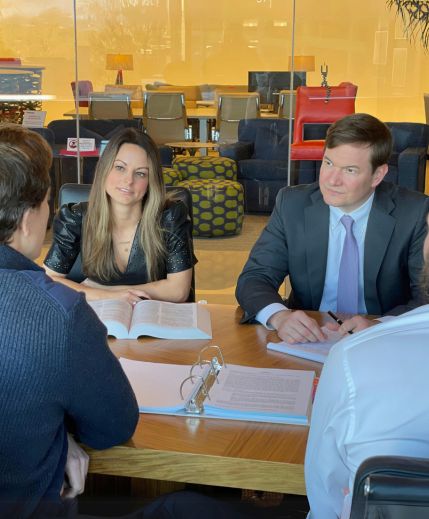The False Claims Act or FCA dates back to the 1860s when Congress passed the law to address concerns that suppliers to the Union Army were defrauding the government by submitting false claims for payment. Essentially, the False Claims Act provides civil and criminal penalties for those who submit (or cause to be submitted) false claims to the Government for payment for goods or services. Because the federal government has grown so large and contracts with so many private companies, the type of potential False Claims Act cases spans from military hardware to reimbursements for medicare payments.
If the person or business who submits the false claim does so knowing the claim for payment is false, there are serious criminal consequences. Otherwise, the government can pursue a civil case and levy large fines and demand reimbursement for any payments made by the government to the person or business that submitted the claim. At Ellis Hinton we defend individuals and businesses in criminal and civil False Claims Act investigations. Speak with a Greenville False Claims Act and whistleblower litigation lawyer today.

Many False Claims Act cases begin when a whistleblower files a qui tam action against the individual or business that was submitting the false claims for payment. Qui tam is short for the Latin phrase qui tam pro domino rege quam pro se ipso in hac parte sequitur, which means “[he] who sues in this matter for the king as well as for himself.” The whistleblower, or “relator” typically will alledge that a person or business has submitted false claims (most often in the healthcare billing context) to the government for payment and the relator is suing on behalf of of the government. After the lawsuit is filed the relator will then go to the United States Attorney’s office and ask the government to step in and litigate the case on the relator’s behalf, or “intervene” in the case. The benefit to the relator is the law provides for large payments to the relator/whistleblower if the litigation is successful. When someone blows the whistle and starts a qui tam case, many times the government will open a parallel criminal case. These joint investigations are called parallel proceedings. When individuals or businesses are facing parallel proceedings, there are many pitfalls at every step in the process. On top of the potential civil and criminal liability, in the medical field, physicians also need to be concerned about losing their medical license or their ability to be reimbursed for treating Medicare or Medicaid patients. The Department of Health and Human Services Office of Inspector General can “debar” or exclude medical professionals from the ability to collect payment from the government for treating these patients.
In cases where false claims were submitted unintentionally, the law allows businesses to self-report violations. If the business self-reports, they can avoid some of the more harsh penalties or fines associated with qui tam lawsuits. The bottom line is that if you learn of an investigation, whistleblower, or even if you simply have a question about some billing that may have been done incorrectly, you should call an experienced federal lawyer immediately. Our Greenville False Claims Act and whistleblower litigation attorneys stand ready to help you and your business navigate the treacherous waters of each phase of litigation related to the investigation of false claims, qui tam lawsuits and parallel proceedings.

Under federal law, it is illegal to: (1) to knowingly present to the federal government a false or fraudulent claim for payment, (2) to knowingly use a false record or statement to get a claim paid by the federal government, (3) to conspire with others to get a false or fraudulent claim paid by the federal government, or (4) to knowingly use a false record or statement to conceal, avoid, or decrease an obligation to pay money or transmit property to the federal government.
Under federal law, individuals that come forward and expose illegal activity are protected under the False Claims Act. Under the False Claims Act, whistleblowers can collect money or whistleblower recovery shares if the company is breaking the law as the whistleblower suggests.
Deciding to come forward as a whistleblower is a difficult decision. While the False Claims Act protects the whistleblower from being fired, demoted or threatened while engaging in protected activities, it is nevertheless hard to make the courageous decision to come forward. That’s where Ellis Hinton can help.
Ellis Hinton can work with you through the process of blowing the whistle. The False Claims Act is complex and there are rules governing what documents and information you can legally take from your job when you are gathering information for your whistleblower claim.
Our False Claims Act and whistleblower litigation lawyers in Greenville will stand with you to help you hold the company accountable for any fraud that may be occurring.
Clients come to us facing some of the most serious, potentially life-altering, problems they have ever experienced. If you find yourself there, call us to schedule a free initial consultation. You can also fill out the contact form below and we will call you back promptly to schedule a free consultation.